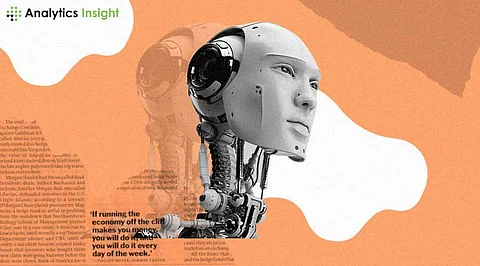

The tech industry has always been a breeding ground for innovation, but with innovation comes controversy. In 2024, several major issues have sparked debates across various sectors, from AI ethics to data privacy. These controversies have brought attention to the ethical, social, and environmental implications of technological advancements. Here’s a closer look at the top controversies in tech for 2024:
Generative AI tools, such as ChatGPT and deepfakes, have drawn significant attention in 2024 due to their ability to create highly realistic but misleading content. These technologies are being used not only for productive purposes but also for spreading misinformation, particularly during critical events like elections.
According to the World Economic Forum's Global Risks Report 2024, the rapid proliferation of synthetic content is a serious threat to democracy and social stability. The ability to create convincing fake videos and news articles has resulted in widespread manipulation, eroding trust in media sources and posing risks to public opinion.
Data privacy remains a hot-button issue in 2024, with tech companies facing intense scrutiny for their data collection and surveillance practices. One of the most significant incidents involved a social media giant being accused of collecting user data without proper consent. This violation led to legal battles and reignited debates on the balance between user privacy and profit-driven data monetization models. The incident has raised concerns about how much personal information is being collected, who has access to it, and what steps are being taken to protect users' privacy rights.
AI bias has been a persistent issue, and 2024 has seen heightened attention to its potentially harmful effects. In one prominent case, a facial recognition system was found to exhibit higher error rates when identifying people of color, sparking accusations of racial discrimination.
This has triggered renewed calls for transparency and fairness in AI development. Critics argue that the biases present in training data, if left unchecked, could perpetuate societal inequalities. The controversy has also prompted discussions on whether governments should implement stricter oversight and guidelines for AI technologies to ensure fairness and accountability.
The environmental footprint of the tech industry has come under scrutiny in 2024, particularly concerning the energy consumption of data centers and blockchain networks. A recent report revealed that the energy demands of these facilities have reached unsustainable levels, contributing significantly to carbon emissions.
This has sparked debates about the need for greener practices within the industry. Critics argue that tech companies should prioritize sustainability by adopting more energy-efficient technologies and reducing electronic waste. The role of regulation is also being discussed, with environmental advocates pushing for stricter policies to mitigate the environmental impact of tech.
Cybersecurity continues to be a critical issue, with several high-profile data breaches making headlines in 2024. One of the most alarming incidents involved a major healthcare provider's systems being compromised, leading to the exposure of sensitive patient data.
This breach has highlighted the vulnerabilities in cybersecurity infrastructure across industries, particularly those handling sensitive information such as healthcare and finance. The incident has led to increased calls for more robust cybersecurity measures and investment in stronger defenses against evolving cyber threats.
The rapid growth in the development of artificial intelligence has raised quite a number of ethical considerations, especially in how these technologies are being deployed. In 2024, a hiring algorithm previously used at a major company was found to be biased against certain demographic groups; questions about the ethical use of AI in decision-making processes were raised.
Some critics are of the view that, in the main, artificial intelligence systems-especially those applied in critical domains like hiring-should be subject to strict guidelines based on ethics in order to stop erosion of discrimination. All this has raised many concerns about the need for better control and increased accountability in these areas of development and deployment of AI technologies.
For long, dominance in this industry has come in on the part of a few; yet, in the year 2024, issues of antitrust are again driven to the front. A few companies are being investigated and facing lawsuits over practices that critics say are freezing competition and hindering innovation.
Events such as predatory pricing and exclusive deals have therefore led many to question whether the existing regulatory framework is sufficient to ensure that technology markets remain competitive and open to diversity. There are even calls to break up the largest technology companies so that the playing field can be levelled for the small competitors.
With automation increasingly improving, one of the major contentious issues arises in the contribution of automation toward employment. A report in 2024 predicted that increased automation will cause considerable job displacement in some industries.
This sparks fear of greater economic inequality and social instability. From manufacturing to customer service, AI and robotics are slowly replacing human labor. This has prompted discussions on how to address the socio-economic impact of automation, with proposals ranging from re-skilling programs to the implementation of universal basic income.
The debates over the technology sector in 2024 mirror the expanding intricacy and extent of contemporary technology. This is a field that innovates at breakneck speed and is at the same time under increased demands to take careful oversight and ethical considerations through public discourse. It is only in this way that technological advances can be assured of serving society and not exacerbating ongoing problems.
